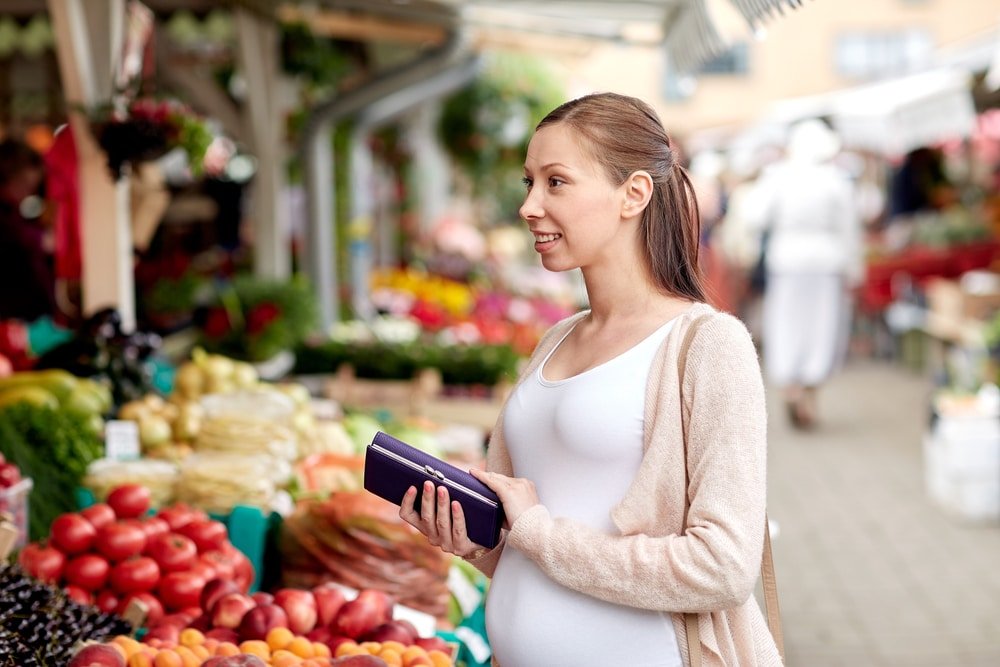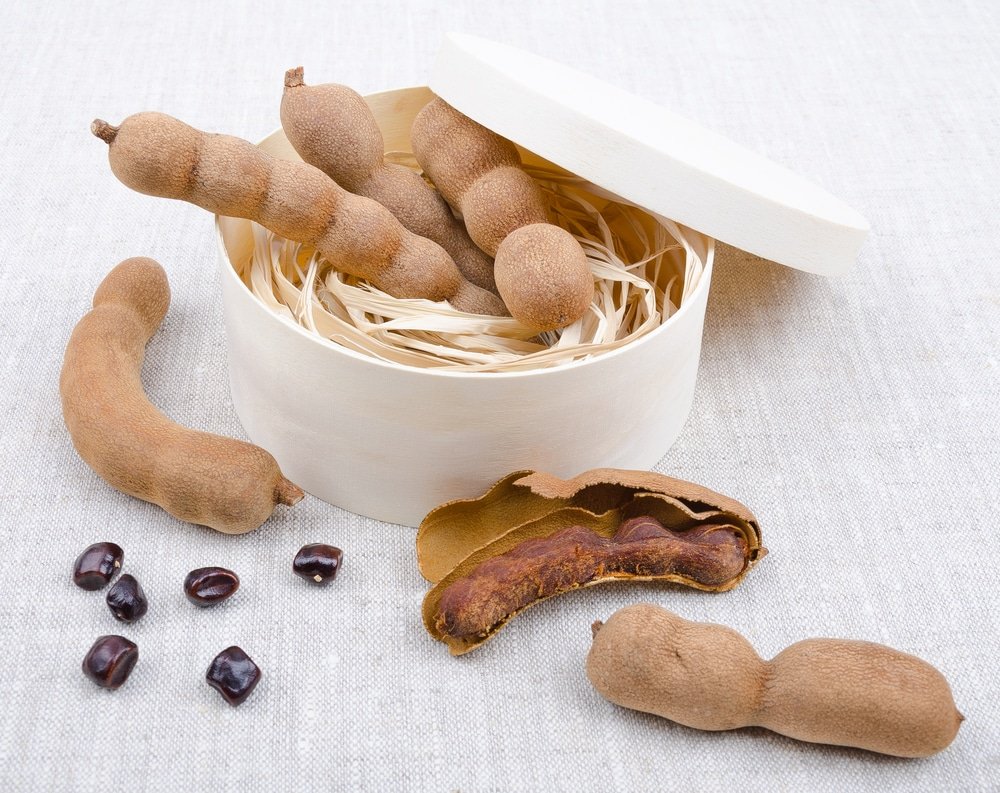Some of the important foods you should eat during pregnancy include dairy products such as milk, cheese and yogurt, sweet potatoes, fatty fish such as salmon, avocados, whole eggs, kale and other leafy vegetables like cucumber and spinach, various nuts like almonds, and peanuts, oatmeal, citrus fruits like orange, lean beef, whole grain foods, and berries.
While pregnancy is a period of time that you are supposed to be eating much more, many women instead decide it is a good idea to restrict the number of calories they eat, in an attempt to minimize the amount of weight gained throughout.
However, this is a bad practice and sets you up for problems with your pregnancy or to the health of your baby. Plus, the baby effectively gets its nutrition wherever it needs to, meaning that if it needs more calcium, it will gladly take it from your bones which in the process makes it likely that you will suffer fractures or worse.
It isn’t difficult to eat a good diet while pregnant, as long as you consume highly nutritious foods that also keep you satisfied for hours. Wondering what some good suggestions are? Read on to find out some of the most important foods you should be eating while you are pregnant.
13 Important Foods To Eat During Pregnancy

1. Dairy Products
Dairy products are among some of the most important foods you consume while pregnant, as they contain important nutrients such as calcium, vitamin D, and protein that you and a growing baby need. Dairy products include more than mere milk, as cheese and yogurt also fit the bill.
In addition to these nutrients, many dairy products also contain beneficial probiotic bacteria, which help to support gut health and the immune system. Studies have shown that women whose diets contain high amounts of probiotic bacteria are less likely to develop complications such as gestational diabetes, yeast infections and even the dangerous high blood pressure syndrome known as eclampsia. Babies born to mothers who consume generous dairy during their pregnancy are also less likely to have lactose allergies and respiratory disorders.
2. Sweet Potatoes
Sweet potatoes, unknown to many, are an excellent source of vitamin A, a nutrient very important to the development of the growing fetus.
However, not any old vitamin A supplement will do, as the regular form carries a high risk of toxicity when consumed in high doses. Sweet potatoes, however, contain its vitamin A in the pro-vitamin form known as beta-carotene. It is advised that pregnant women increase their consumption of vitamin A rich foods, especially of the beta-carotene form by 10 to 40% during the course of their pregnancy.
Just 3.5 to 5 ounces of sweet potatoes is able to supply your entire RDI of vitamin A for the day.
3. Fatty Fish, Especially Salmon
The importance of the Omega 3 fatty acids cannot be overstated, especially during pregnancy and while breastfeeding your baby. In short, the brain is composed largely of fat and needs a lot in the form of the Omega 3 fatty acids.
As it turns out, fatty cold water fish are excellent sources of this fat which is needed for the healthy development of your baby’s brain.
It is important to note, however, that you should not consume these types of fish in abundance, as it typically contains mercury which has the opposite effect on healthy brain development and may result in irreversible repercussions.
A good plan of action is to consume no more than 12 ounces of fatty fish per week, or supplement with fish oil supplements that have the mercury removed from them.
4. Avocados
Even though avocados are fruits, they contain very high amounts of the healthy monounsaturated fats. They also contain generous amounts of fiber and B vitamins, the most important of which is dietary folate.
The healthy fats found in avocados compliments the Omega 3 fatty acids from fish nicely, and ensure that the tissues of the brain, skin and cellular membranes are kept intact. Folate is also well known to ensure healthy brain development and prevents the likelihood of neural tube defects occurring.
Also worth mentioning is the fact that avocados contain more potassium than bananas do, helping to regulate blood pressure during pregnancy, and reducing swelling of the legs due to water retention.
5. Whole Eggs
If you tossed out the yolks of your eggs before your pregnancy, it is time you stop that practice. Egg yolks contain arguably the bulk of the nutrients, among which are choline, folate, iron, necessary fat and more protein.
Together with folate, choline also helps to ensure the healthy development of the fetal brain, and can even prevent excessive weight gain by helping improve satiety. It does not matter how you consume it, as long as you do.
6. Kale And Other Leafy Vegetables
You know it was only a matter of time before the leafy vegetables made an appearance since you probably already realize that they are extremely important to people of all ages, pregnant or not.
Of particular importance to pregnant women, is the presence of vitamin A and vitamin C, in addition to dietary nitrates, folate, potassium and even calcium. They are also extremely low-calorie, adding bulk to your meals and reducing your desire to consume everything within sight.
7. Various Nuts
Though peanuts are technically classified as legumes, to millions of people around the world they are still nuts. Nuts are an extremely important food during pregnancy especially if you are a vegan or vegetarian that does not consume foods from animals.
Peanuts, for example, contain saturated fat, protein, folate, and other nutrients which offer critical support while pregnant. Almonds, on the other hand, supply more protein and other trace minerals. Peanuts also serve the other function of helping to reduce the likelihood of peanut allergies from developing in the young child. The only time you should actively avoid peanuts is if you already have a pre-existing allergy to them. Walnuts are also surprisingly rich in omega-3 fats and can help supplement needs if you are a vegan.
8. Oatmeal
Oatmeal makes for an excellent breakfast food thanks to its ability to help regulate blood sugar levels, and during pregnancy, to prevent constipation and the likelihood of hemorrhoids developing as a result.
But that’s not all the offer, as oatmeal is an excellent source of folic acid and iron both of which are critical during the prenatal period of development. If you dislike having oats in the morning, you can also try including them in baked goods such as muffins or cookies.
9. Citrus Fruits In Moderation
Fruits still remain an important part of a pregnant woman’s diet, even though in the case of citrus you need to be careful of the overall amount you consume on a daily basis. Vitamin C has the potential to cause adverse effects in pregnant women when consumed in high amounts, making it necessary to have probably just one orange per day.
Oranges also offer important fiber, folate and important citrus bioflavonoids which help to stimulate your immune system. Studies have shown that these bioflavonoids reduce the likelihood of the child developing serious respiratory disorders such as asthma.
10. Lean Beef And Minced Beef
Beef is one of the richest sources of high-quality protein around, also containing high amounts of the mineral zinc which plays an important part in cellular health, immunity and which can help reduce the risk of complications during pregnancy such as preterm labor and sensitivity of the newborn to infections.
Just keep in mind that even if it is lean beef, it still contains a higher than average amount of fat, so you must keep an eye out for that.
11. Whole-Grain Foods
Whether you are pregnant or not whole grains are an excellent addition to your diet. Not only do they help to slow the rate of glucose absorption into your bloodstream, but also help keep your bowel motions regular, avoid constipation and help to prevent other complications associated with improper waste removal from the body.
Whole-grain foods such as whole wheat bread also play a role in reducing cholesterol levels and removing excess fat from the bloodstream.
12. Bananas
Bananas are great healthy snacks during pregnancy, being able to relieve nausea associated with morning sickness and also swelling of the legs due to water retention. A banana daily can help keep your energy levels up when you feel lethargic.
13. Berries
During pregnancy especially women seem predisposed to urinary tract and yeast infections, which are more difficult to manage than under normal circumstances. Certain berries consumed whether fresh or in dried form can help reduce the development of these conditions and act as natural therapy as well.
Conclusion
There are endless other healthy foods to consume during your pregnancy, but it is important to keep in mind that moderation is still key. Consuming too much of anything will inevitably still lead to weight gain.



